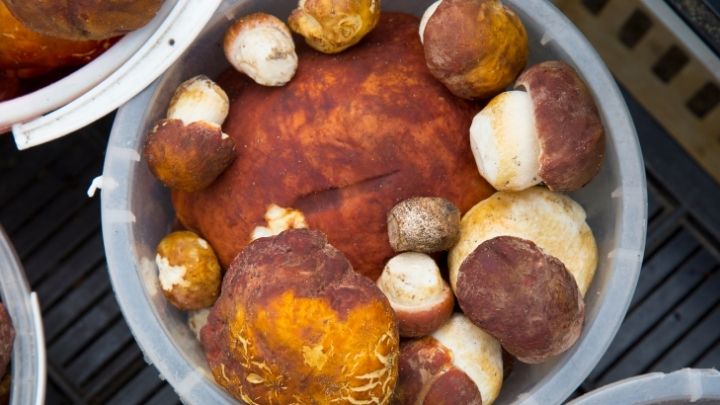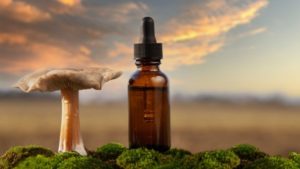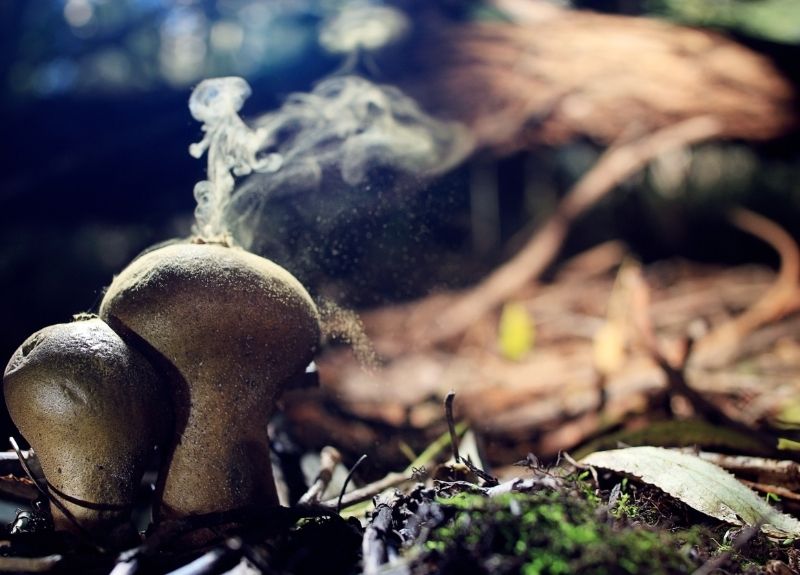Medicinal Mushrooms in History
Mushrooms have been used throughout history to create life-saving medicines. One of the greatest medical discoveries in history was the derision of penicillin from fungi, which has led to the generation of many other antibiotics and incredible treatments for major diseases. This practice, though, likely began well before the 1928 Alexander Fleming breakthrough.
As far back as 3300 BC, mushrooms may have been used for medicinal purposes. Mushrooms have been used in Japanese and Chinese medical history as well, with these cultures finding and using more varied species. Egyptian hieroglyphics portray the mushroom as the food of life and there is strong evidence that mushrooms played a quintessential role in the North and South American peoples’ culture from as far back as 1500BC.
This shows the ubiquity of use and incredible abilities that mushrooms have had across human history. Now, we are looking back, through our modern lens, to find and exploit those uses in modern medicine.
 Mushrooms Use in Modern Medicine
Mushrooms Use in Modern Medicine
Mushrooms have become a staple in modern medicine today, though not as extensively in the past. The main medicinal use of mushrooms began in 1928 when Alexander Fleming discovered penicillin through an accidental growth of mold on a petri dish containing a sample of staphylococcus. Due to this discovery, a new medical age was prompted and diseases that previously had no treatment, such as gonorrhea, were cured and prevented. Almost a century later, we are still discovering the miraculous uses of mushrooms and fungi.
Mushrooms Anti-Inflammatory Response
According to a collaboration of researchers, it was found that certain edible mushrooms, and mushroom derivatives, generate an anti-inflammatory response when introduced into the body. This response is not comparable to other drug responses, e.g. Acetaminophen, in that they do not suppress response, instead correcting some deficiencies such as antioxidants and vitamins.
Some physiological responses of immune suppression, such as age, can also reduce the body’s ability to resolve inflammation. Edible mushrooms are normally high in anti-inflammatory components and help support the body’s natural immunity by assisting with restoring homeostasis.
 Mushrooms in Oncology
Mushrooms in Oncology
According to researchers. Alena G. Guggenheim, ND, Kirsten M. Wright, BS, and Heather L. Zwickey, Ph.D., there are 5 major mushrooms used in oncology mainly for their ability to boost the immune system of patients. This study focused on the most commonly studied mushrooms that had a vast number of studies to draw from.
- Agaricus blazei (almond portobello)
- Cordyceps Sinensis (caterpillar fungus)
- Grifola frondosa (maitake)
- Ganoderma lucidum (mannentake)
- Trametes Versicolor (turkey tail)
These species of mushrooms have been used in clinical trials as methods and have produced interesting results. The most impressive of these is the increase in cytokine levels in patients that were given the above mushrooms and fungi.
Cytokines are proteins that the body uses to stimulate and nurture the growth of certain immune system cells. The most promising of these are the different interferons released such as IFN-Alpha, IFN-Bet, and IFN-Gamma. IFN-Alpha generates the best case of immune system response and has been shown to boost immune response in both immunosuppressed patients and patients with normal immune responses.
The impressive response can be seen in a trial with PSK (turkey tail) that increased survivability rates by 26.8% when given to patients with colorectal cancers.
Mushrooms Boost Immunity
There have been promising results when studying other health benefits from mushrooms. Lentinula edodes, or Shitake Mushrooms, have shown an ability to also reduce inflammation and improve cytokine and immune system development. It is an interesting note to recognize that this usage of mushrooms has been utilized throughout the course of human history, as alluded to in the Mushrooms in History. It seems that we are just now starting to rediscover some of the historic uses of mushrooms. As there are new methods of testing the usages and derivative uses of mushrooms.
Understanding different mushrooms can be helpful in boosting the immune system. Where using specific mushrooms in treating different cancers is done on a more derived and pharmacological method, using mushrooms to boost the immune system is much more likely to be done through diet and supplementation.
There are over 14,000 different species of mushrooms currently and many of those have individual usages. As described earlier, the five used in the study for immune response in oncology patients are some of the best for your immune system.
 Get Medicinal Mushrooms
Get Medicinal Mushrooms
Getting medicinal mushrooms is a fairly easy task. There are many different companies that specialize in medicinal mushrooms and that have different methods of taking them.
It is important to speak with your trusted medical professional before you start any supplement or serious dietary changes. Not all supplements are right for all people. All that being said, most supplements are safe and fairly effective.
Some of the best supplements available are:
- Genius Mushrooms
- Onnit Shroom Tech
- Freshcap Mushrooms Thrive 6
- NutraVein Mushroom Complex
These are all available on Amazon and are reasonably priced. The natural immune boosting power of mushrooms is a great way to set up a generally healthy immune system to keep yourself in good shape.
Final Thoughts
Mushrooms can help Because there are some toxic mushrooms, it is important to research the mushrooms, fungi, or supplements you want to start taking, but as a method for improving immunity, there are definitely some available that can help you get started.
Looking around for medicinal mushrooms is fairly easy and different online and brick and mortar stores should carry the right ones for you. It is also important to make sure you research your dosage, what part of the mushroom you should be ingesting, and if there are other components to add to the mushroom mix to make it work for you.
Mushrooms do have some miraculous healing powers, great uses for increasing immunity, and just taste good. They should definitely be researched more so that we can open up all of the mysteries they hold.





No Comments